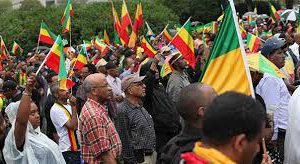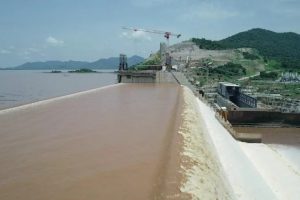
Though the diaspora community live far away from home, they are expressing somehow similar feeling and response with those at home. They are contributing their share in the prevention of conflicts, rehabilitating victims of conflict as well as ensuring sustainable pace in different ways. For instance in one of the recent meetings of the diaspora community in USA, Ethiopian Ambassador to the US Fitsum Arega said Ethiopians are making remarkable efforts in giving quick response to the call of the nation.
He further noted that their contribution is still valuable and needed in thwarting the challenges that the country could face in connection with construction of GERD, Sudanese grabbing of Ethiopian land, fake news, attacks and displacement of citizens, among others. Even after the emergence of conflicts the diaspora community has shown their commitment to peace and stability at home through providing financial and material support to the victims, there by soothing the impact of the conflict. For instance recently Ethiopians in various countries have raised some 430 million birr to support people displaced from their homes due to conflict.
Through their commitment to the maintenance or restoration of their homeland, members of a diaspora engage transnationally in a number of ways. Diaspora contributions to development and peace building take many shapes, with variations occurring in who acts, how, doing what, why and where.
Contributions are often made by individuals – for example, through the sending of remittances to family members – but may also be done collectively, such as when diaspora organizations implement projects in the country of origin, for instance improving access to water, healthcare or education. The activities engaged in can be both direct and indirect. Direct transnational engagements occur when diaspora individuals or groups send money, goods or ideas to their country of origin directly.
Indirect transnational engagements occur when diaspora individuals or groups urge others, including European governmental and nongovernmental actors, to undertake activities of benefit to the country of origin. In this regard, the Ethiopian diaspora have been increasing their engagement in the economic activities and ensuring peace in the home country. The Ethiopians in the United States have held recently a 5,000 meter support race in 12 cities Ethiopians and people of Ethiopian descent under the motto “I will run for the (Abay) Nile” in support of the construction of the Grand Ethiopian Renaissance Dam ( GERD).
The participants said they will continue to support their grand project with money, knowledge and advocacy until the dam is completed. Considering the wide variety and high level of diaspora engagements with development and peace building especially those from the emerging world, it is not surprising there is great interest in the topic among European governmental and nongovernmental actors.
There are a number of reasons for this interest, which relate to remittances, return, resources, recognition and reputation, and some scholars who tried to address each of these in turn. First, remittances have widely been acknowledged as a major source of finances at the national, regional and household levels.
However, international actors have attempted to tap into this resource, but have now largely recognized that, since much of this funding stream is private money sent for private purposes, such an approach is problematic. More successful efforts have focused on lowering the costs of remittance transfers and increasing legal options for sending money.
The political role of migrant diasporas has not been given great weight in academia nor in practice, a research in the sector demonstrates the crucial role that diaspora contributions can play in conflicts and reconciliation processes. Ethiopia is facing constant unjust relationship in relation to the GERD underscored the Ethiopian Diaspora intellectual in various forum across the globe. Ethiopia has long been committed to resolving problems peacefully. They described the current situation in Ethiopia and the use of peaceful options. The peace approach in dealing with the utilization of the water resources of the Nile basin is the only option for all the riparian countries.
In recommendations, they usually stated that it is important for the Ministry of Foreign Affairs to have a more proactive approach towards diaspora involvement, ultimately aiming at strengthening positive while discouraging negative contributions with regard to unjust pressures. In addition to this, in recent years, there has been a general increase of interest in the transnational political and military activities of individuals and groups outside their country of origin.
The fact that there is an increase in interest does not necessarily mean that transnational political organizing is new, and past examples include overseas Chinese in the 1911 Revolution; the Jewish diaspora in the creation of Israel; and the activities of Irish Americans over time with respect to the conflict in Northern Ireland. Hence, following such an approach could have also better engagements of Ethiopian diasporas in the state and nation building process beyond that of peace and development.
These examples illustrated the enormous potential of members of the diaspora in the political transformation of their ‘homeland’, and this is especially true for refugee diasporas, which are produced by political repression or violent protracted conflict in their respective home states. It is very important to recognize that the relationship between refugee diaspora groups and the country of origin is ‘as likely to be defined by a desire for transformation, contestation and political change as it is by nostalgia, continuity and tradition’.
Both the fact that we are dealing with refugees and the fact that they are in diaspora plays a role. Often, the leadership of the political opposition are amongst those refugees who move further abroad. Political events and conflicts in the country of origin continue to influence and often divide the communities, and political links to the country of origin remain significant. Persons who migrate from a closed society to an open society are able to capitalise on newfound freedoms to publish, organise, and accumulate financial resources to an extent that was impossible in the homeland.
BY HAFTU GEBREZGABIHER
The Ethiopian Herald May 16/2021




